Even with all the numerous titles that were delayed due to COVID 2020 has still been a pretty amazing year for games. For me personally this has culminated in no less than 3 developers who’ve previously won my game of the year releasing something this year and every single one of them has met the high standard I had set for them. It started off with Ori and the Will of the Wisps and was soon followed by The Last of Us: Part II. What’s the third game I hear you ask? Well whilst technically not released this year Hades from Supergiant games did go 1.0 this year and, to be honest, when I first heard about it going into Early Access I was a little concerned. However after playing it I can see why it was done as this is the kind of game your player base will absolutely destroy with unbalanced builds if you don’t do it right. I was even more cautious when I saw it was a roguelite experience, something I’m not usually fond of. However in true Supergiant fashion they’ve managed to create an experience that got me interested in all aspects of the game, getting beyond its construction to instead focus on the enjoyment of the challenge. They continue with their solid track record of delivering new and fresh game experiences every time and also ensuring we don’t go too long without hearing the dulcet tones of Logan Cunningham.
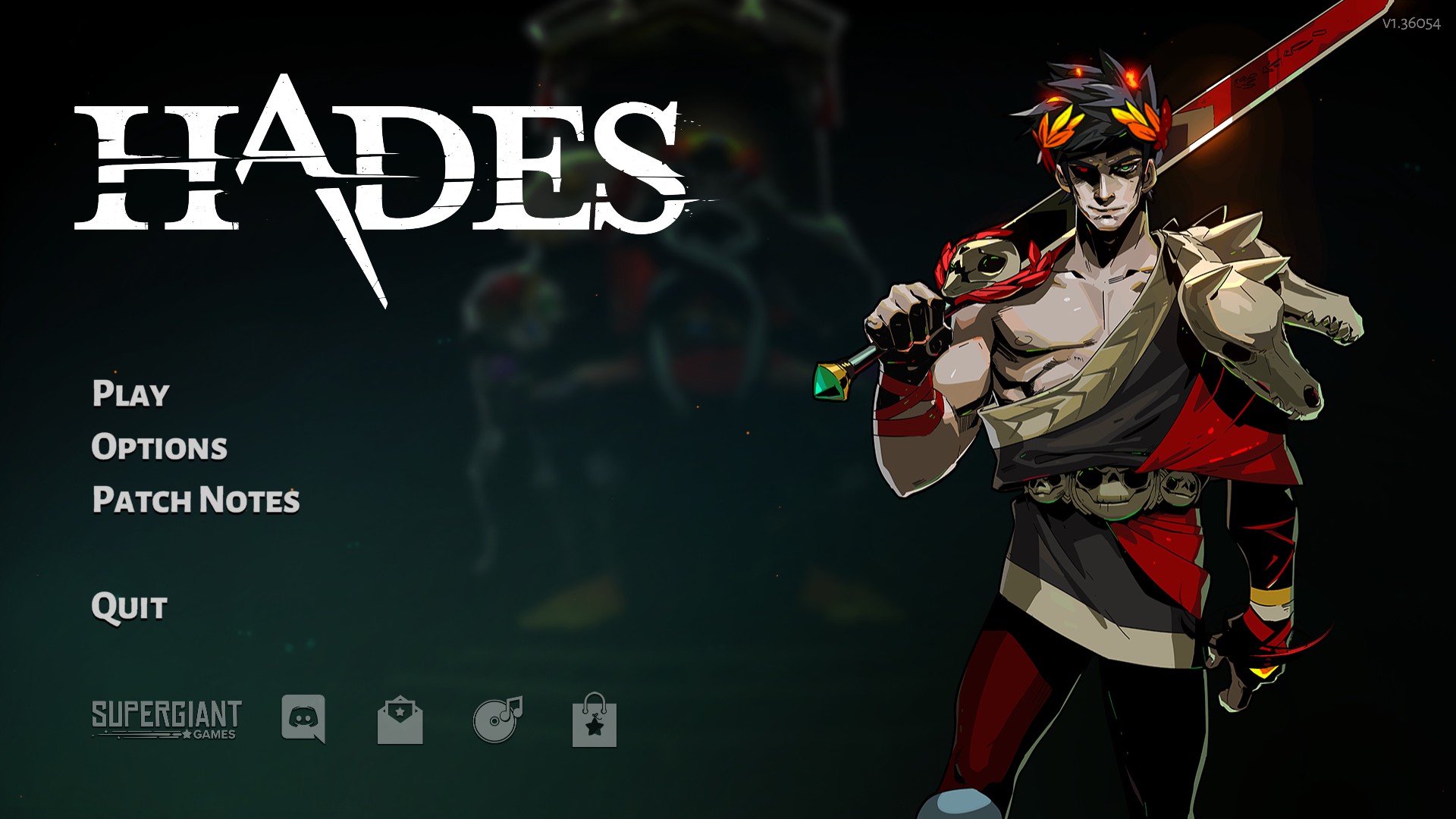
You play as Zagreus, the son of Hades, as you seek to escape your father’s realm in the Underworld. For one reason or another the gods of olympus have decided to aide your cause and send you powerful boons that give you abilities that you could have never dreamed of. However your father isn’t content with making this particularly easy on you and sends all of the denizens of the underworld against you. So you will battle your way through the various layers of hell and, more than likely, you’ll meet your untimely end as no one escapes the grasp of the underworld. But then again you’re the son of a god, so death really isn’t a barrier to you now is it.
Supergiant’s visuals are once again at their best in their latest game, showcasing all the refinement they’ve put into their trademark stylized isometric art style that they’ve crafted over the years. The worlds are brilliantly rendered in bright primary colours, even the drab first level bursting with all sorts of colours when you get in the middle of combat. The colours are expertly used to reduce visual confusion as well, making it easy to distinguish between different kinds of enemies, hazards and (probably the most important thing) your player character. Combined with this is some fantastic sound work, encompassing all aspects of sound design from backing music to foley work to ambient environment sounds. Really at this point it feels like Supergiant is just flexing on us for the fun of it, showing just how great they are at piecing together every part of the audiovisual experience to create something that none have been able to properly replicate.
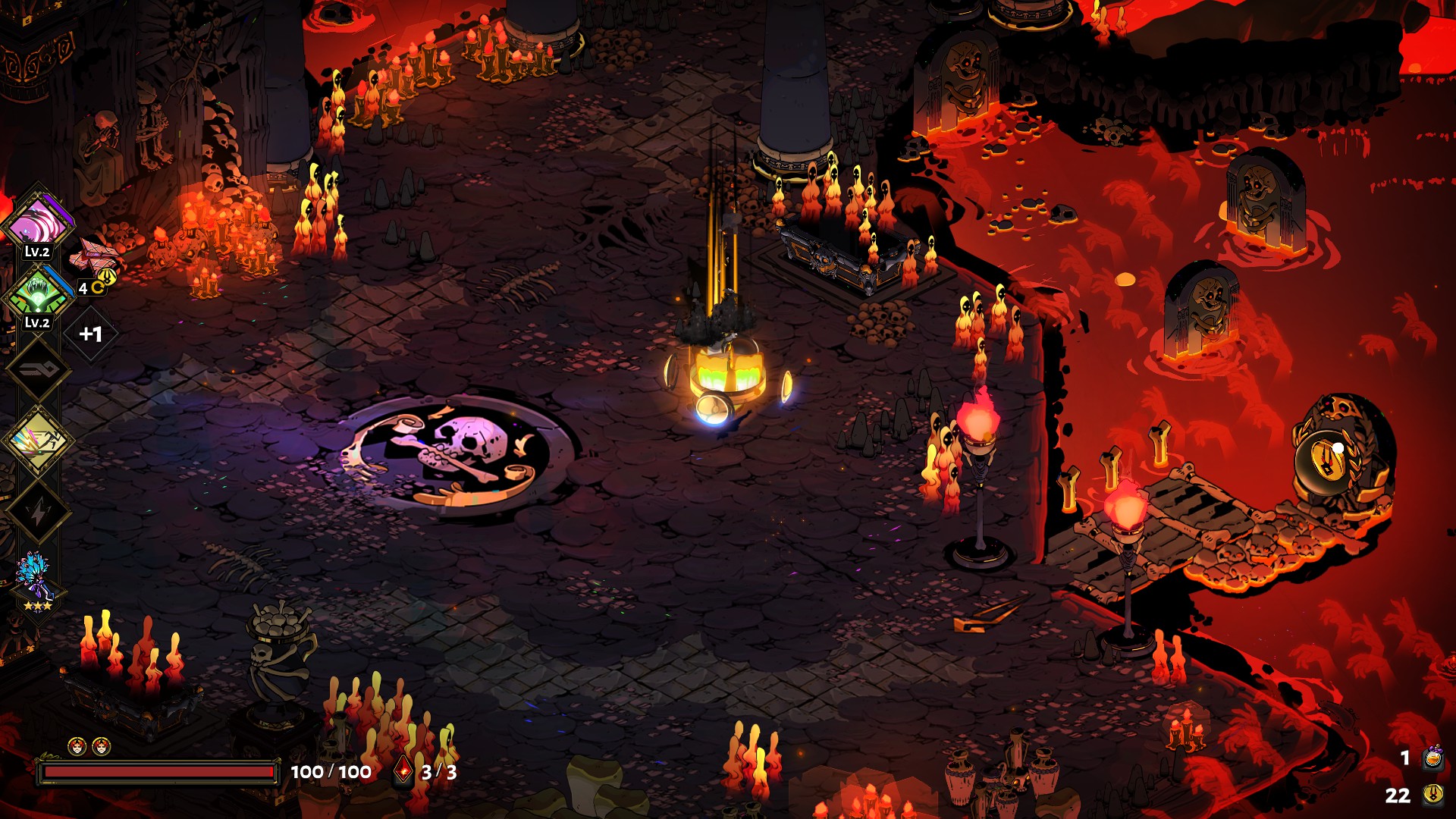
Knowing that Hades is a roguelite going in should tell you most of what you need to know about the core game loop although there are a few distinct Supergiant flairs added in for good measure. You’ll spend a lot of the game fighting your way through dozens of enemies, trying to avoid damage and often praying for RNGesus to bless you with a particular thing to get you out the predicament you’ve currently got yourself in. Of course like any good Roguelike you’re going to be dying a lot and when you do it’ll be all the way back to the start for you. Woven into all of this is Hades’ storytelling with dying kind of functioning like the camp system does in some of the bigger name RPGs. Scattered amongst all of this is dozens of not-so-secret things that’ll help make your journey a lot easier and whilst I’ll probably reference a few of them it’ll by no means be an exhaustive list. Heck I know there’s a couple things I didn’t even get near due to me blasting through the game quicker than the expected average joe. Suffice to say that I’d probably recommend playing Hades regardless of whether or not it appeals to you on a base game mechanical level as really it’s only half of what the game has to offer.
Combat is…interestingly varied. The game’s early hours are spent unlocking the different weapons, figuring out which boons from what gods you prefer and doing a little min/maxing to figure out how to best craft a build that’ll get you through to the end. I defaulted to my usual fast paced combat preference for most of the game but that’s not to say you can’t play this game slow and strategically if you so desired. For me my weapons of choice were the fists followed by the shield and the sword however I’ve learned that most people tend to favour the bow and gun more often. The only crutch ability that was a must have for me in most of my runs was the deflect on dodge ability from Athena and any run without it was usually a bit of a trial in frustration as I definitely relied on that far more than I should’ve. Apart from that I’d typically try to maximise the boons against the weapon I was currently using: the fists for afflictions that stacked on hit, chain hit abilities for the shield (for throwing), etc.
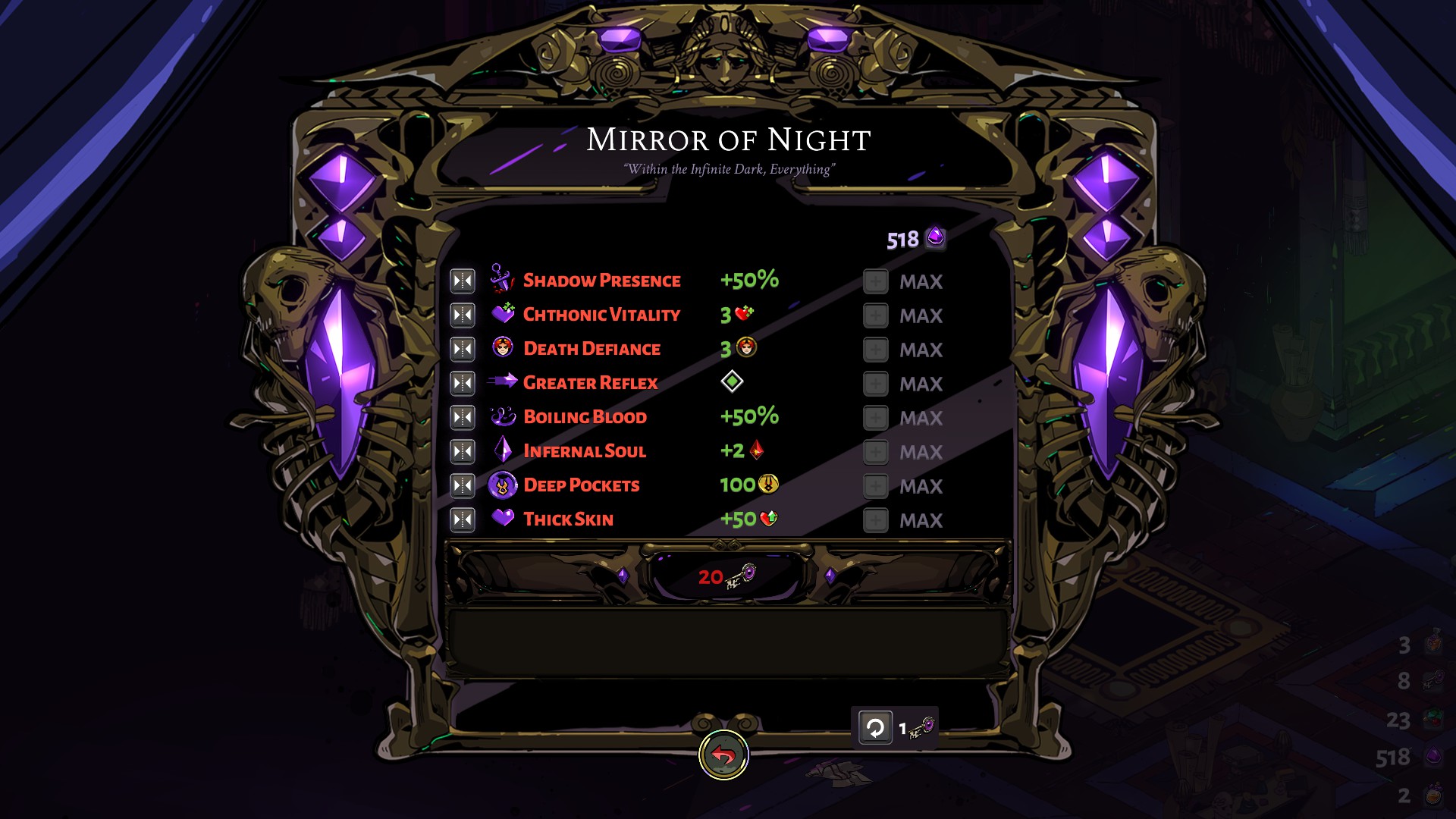
In the early days it can definitely feel like the cards are stacked heavily against you and they are to some extent. My first run saw me get through to the last boss only to die with only a sliver of their health remaining; sent back to the start with a meagre hall of items and currency that didn’t seem to make much difference. However the next run went a lot smoother and I managed to take the boss down, albeit without much and I quickly died at the beginning of the next level. Over time you start to become acquainted with each level’s quirks and potential pitfalls and you’ll soon find yourself blazing through sections before running up against the next challenge that you hadn’t had the chance to hit. Then you’ll reach the final boss and that’s when the culmination of everything comes to its peak and…you’ll likely still fail a good number of times. It’s at this point I started reading guides but in all honesty this is yet another one of those Dark Souls situations when, in the end, the real boss was yourself.
You see all the improvements that you make to your character (barring the use of the game’s in built god mode, which I think is a masterstroke of making games like this accessible to all) aren’t really that significant. What will make the real difference is knowing what boons to use for your current weapon/playstyle, the movesets of the bosses, how far you can push things and when you’ll need to be conservative in order to make sure you have enough of what you need to get to the end. My first full run through was a nailbiter, only just making it through by the skin of my teeth (for the record it took me 19 escape attempts to finally get there). The second? Didn’t even die once and was basically unstoppable the entire time. Thus began my grind of Hades end game and for the first 5 or so runs I was actually quite enjoying the challenge of making different builds and weapons work. However after then things started to feel a little repetitive and that’s when I wanted to power through to the end.
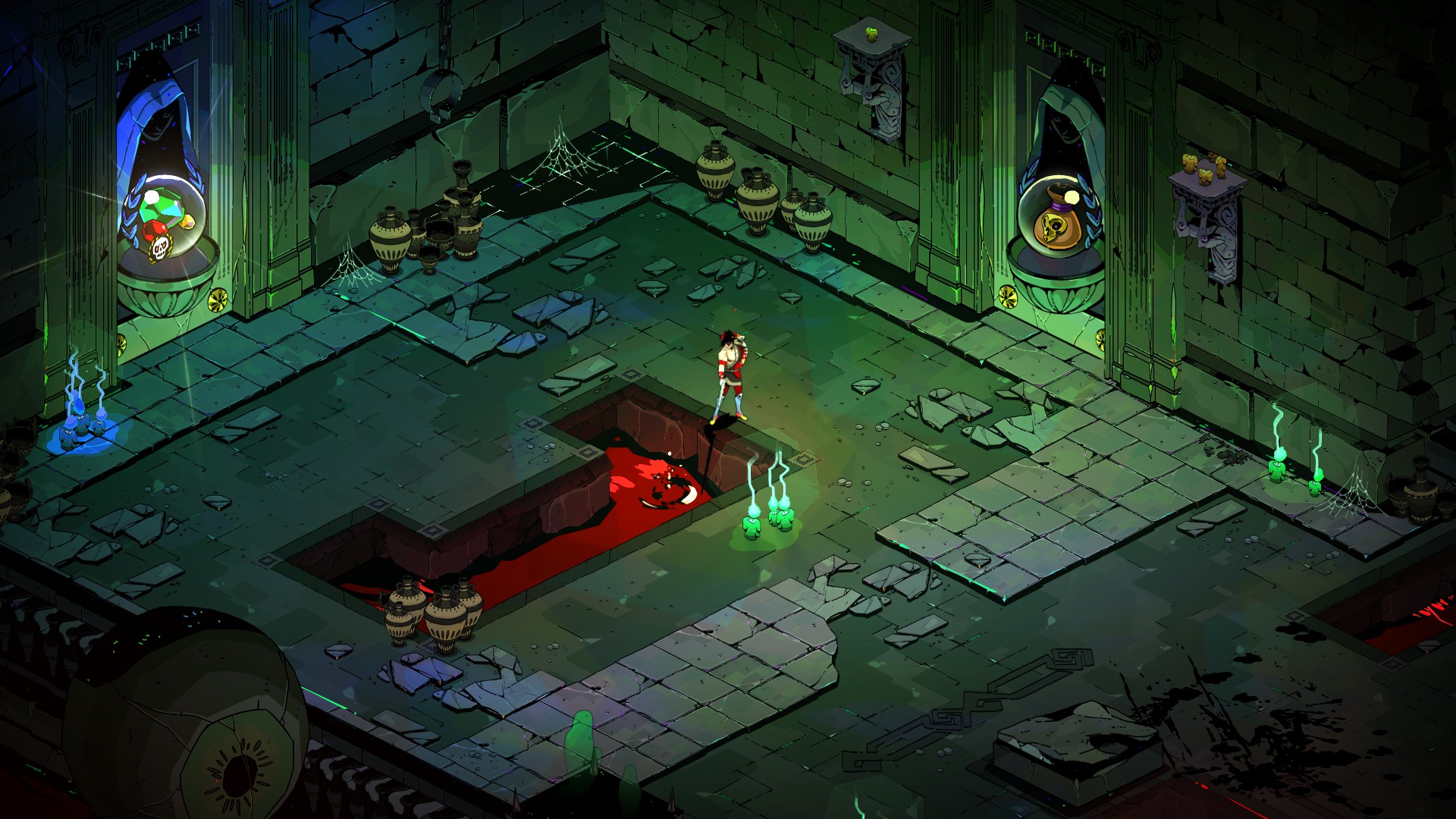
This is where some nuisances of the game’s storytelling and progression systems start to come into play. Long story short: there’s really no substitute for dying if you want to get things progressing from a story point of view and making it to the end doesn’t net you much more for pushing the whole story forward. Thankfully there is a fixed number of runs required to complete the story and still after then you’re free to continue to complete runs to see the rest of the game’s narrative. This does mean that if you’re a somewhat motivated and skilled player though there is potential for you to miss certain story and game elements as they’re simply not designed to show up before you’ve completed a certain number of runs. This can be a little frustrating and confusing when you’ve got prophecies and other progression items that you want to push forward but simply can’t because the dice haven’t rolled in your favour yet. To be fair none of these are necessary if your goal is simply to see the main story through but it does feel a little crap to have to grind things in order to see everything the game has to offer.
Although truth be told I think I might be in the minority here as everyone else I know who has played Hades has spent at least double or triple the amount of time in it that I have. With that kind of time in the game you’re 100% guaranteed to come across basically everything the game has to offer, bar possibly missing a few of the more rare interactions between gods and possibly some of the more esoteric side plots that require either dumb luck or a bit of googling to uncover. Whilst all Supergiant games were designed in some way to be quite replayable Hades certainly takes that to the next level, especially with a good chunk of the plot requiring a lot of play to reveal it.
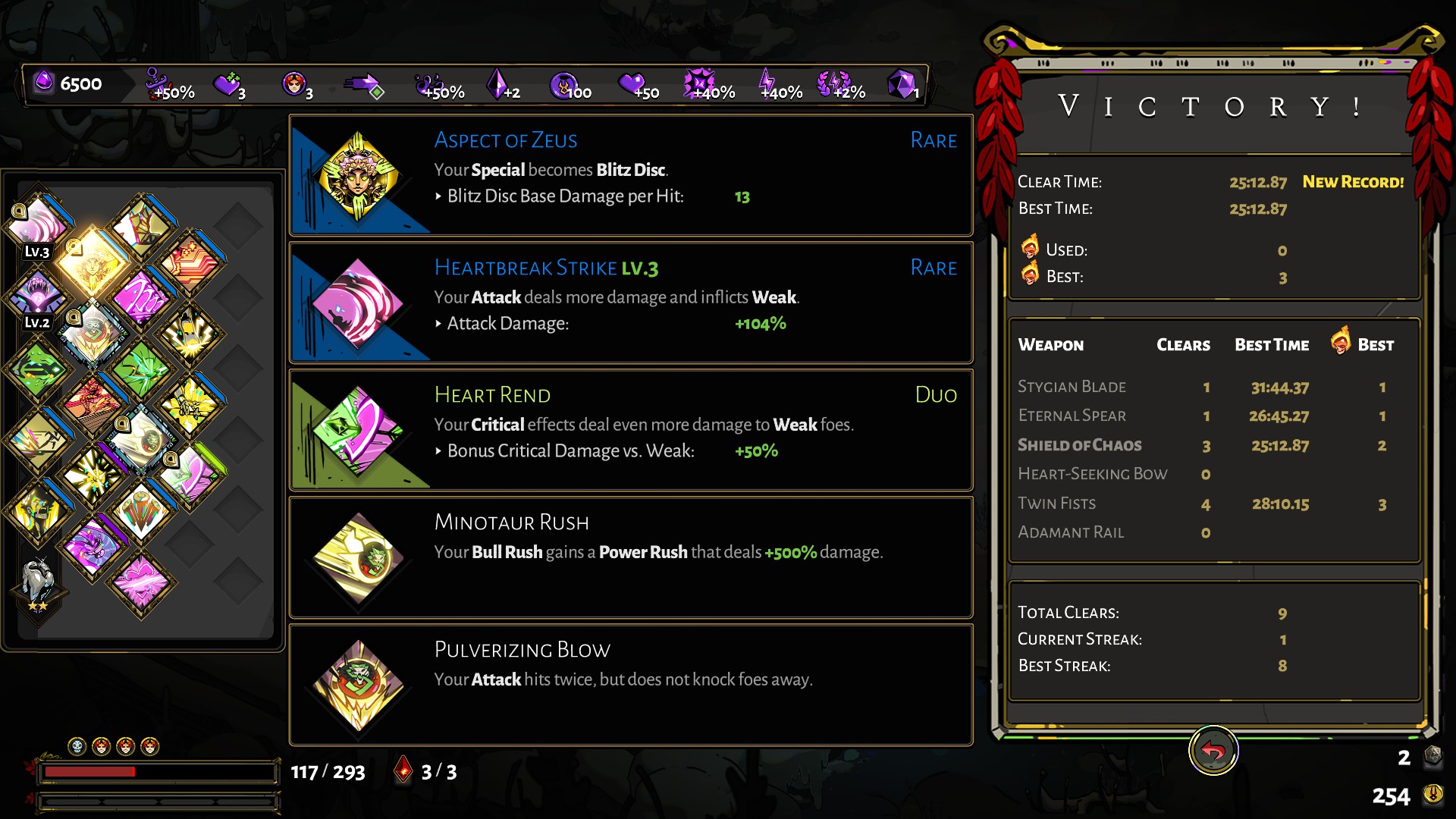
All this being said with my 25 hours or so spent in the game I don’t feel like there’s a lot I haven’t seen. To be sure I know there’s some game elements I simply never got around to doing anything with and I never unlocked a single hidden weapon aspect (not for lack of trying though) but I really was at the point of just simply not enjoying the challenge anymore. The heat system is a great way to keep things fresh for players who want it but for me? I was done when I hit my 9th clear and when I failed to proceed for the next 2 runs I had to leave the game for a couple days as I just wasn’t really feeling the push to go back to it. Of course I did go back and smash through one final run but I don’t think I’ll be going back bar some content updates that add more to the game’s story.
Which is honestly just great as it is currently. Like all of Supergiant’s games the voice acting, scripts and plot are all so well done it’s really hard to pick out any particular aspect that’s worth noting. Whilst the well known Greek god pantheon serves as the basis for the game’s characters and some of the story the narrative that’s crafted using it is unique all its own. Hats off to the developers for once again making me enjoy the visual novel style of dialogue, something which I’m not really a fan of from anyone else. There’s not too much more I can say before I start delving into spoiler territory but suffice to say the story is well crafted, well told and thoroughly enjoyable.
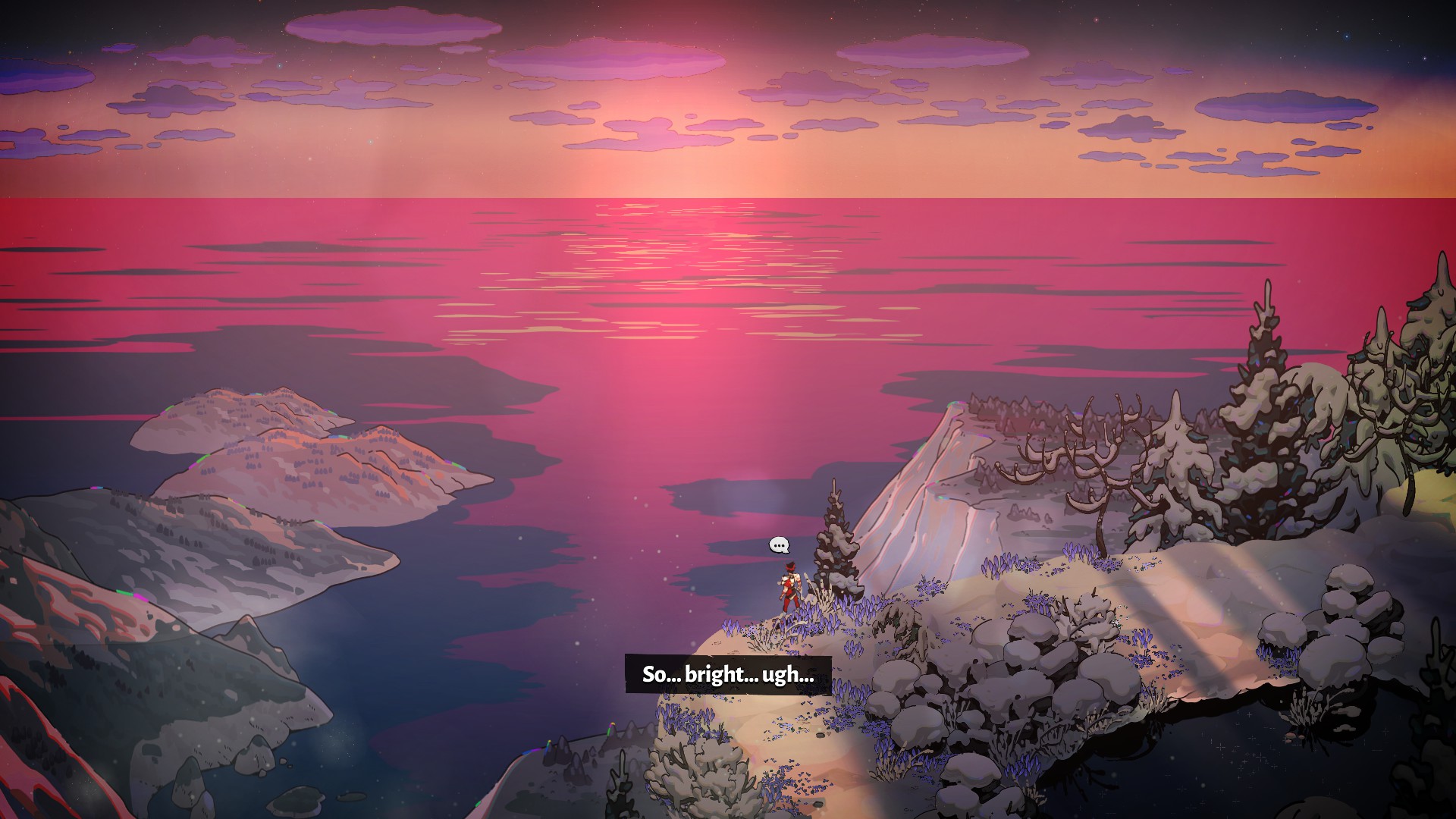
Hades is another feather in the cap for Supergiant games, showing that once again they’re the pinnacle of the niche that they’ve carved out for themselves. It never ceases to amaze me just how enthralling they’ve made certain genres or styles of games, ones I’d traditionally stay very far away from, so engrossing to play. This is due in no small part to the exceptional craftsmanship they have when building their games with no element left wanting for attention. They all suffer the same minor flaw of course, the want to make replayability a core aspect of the game that (in my mind) ends up as grind, but given they’ve made that essentially completely optional this time around I’m finding it hard to count it as a true negative. Even in this year of true high calibre sequels from developers I absolutely adore Hades isn’t overshadowed by any of them and is well in the running to be one of my top games for this year.
Rating: 9.5/10
Hades is available on PC and Nintendo Switch right now for $35.95. Total play time was 25.3 hours with 32% of the achievements unlocked.



